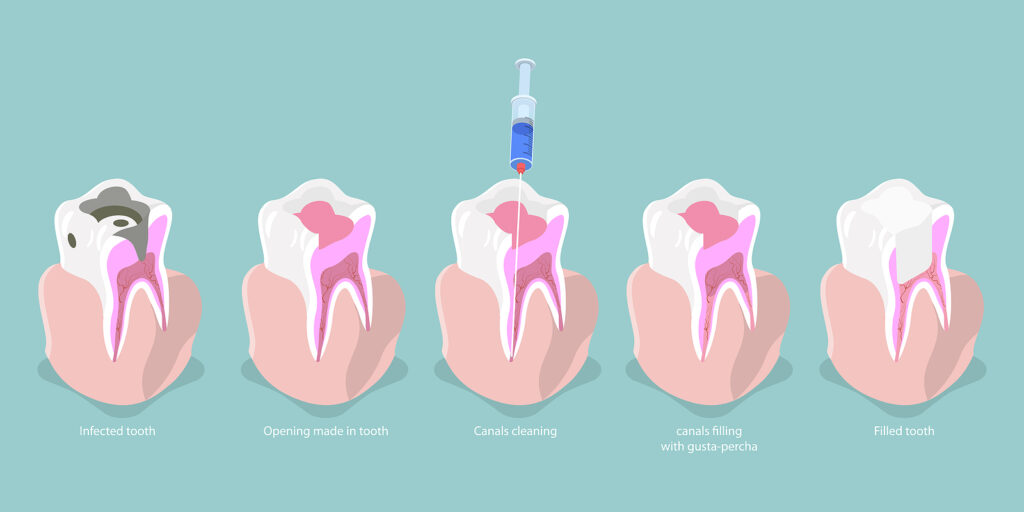We Welcome New Patients! Book Your Appointment Today!
Root Canals
Each tooth is a living part of your body, with its own blood supply and nerve tissue.Sometimes when a tooth gets a cavity that is too large or a fracture (crack) occurs, the living tissue inside of the tooth can become enflamed (irritated) or even die. Bacteria (germs) can get inside of the tooth and spread quickly. This can result in tooth pain, swelling, and even slow destruction of the jawbone around the tooth. Most of the time this process will produce pain, but not all the time.


When this happens, the tooth is effectively “dead” and a root canal is required to fix and keep the tooth. An access hole is created in the top of the tooth and the hollow part of the tooth is located, along with the roots. The inside of the tooth is then carefully cleaned and disinfected to kill the germs living inside of the tooth. The tooth is filled with an inert filling material and sealed so that bacteria can no longer enter. The goal of a root canal is to eliminate the bacteria from the infected tooth, prevent reinfection of the tooth and save the natural tooth. Many times, after a root canal is completed, a crown will be needed shortly after to cover over the top to seal it and prevent future fracture of the tooth.
Every now and then we run across a tooth that is too difficult for a general dentist to complete. We may then refer you to an endodontist to complete the root canal on the tooth. Endodontists specialize in doing root canals to save teeth. If you want more information on root canals, please refer to the American Association of Endodontists website. It has a lot of excellent information about root canal therapy.

